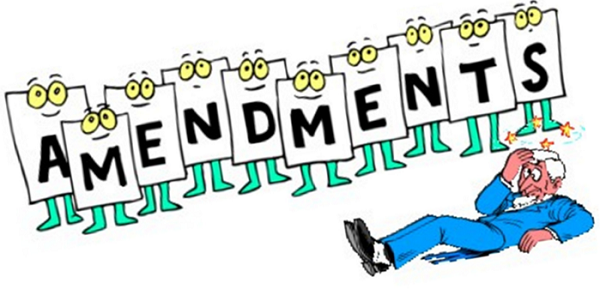Major amendments in rules for charitable trusts in Maharashtra

Under Bombay Public Trusts (Second Amendment) Rules 2019 there are several significant changes concerning digitization of records and which is very welcome. However, among other changes, Rule 19 has been amended requiring auditors to also submit additional information pertaining to the income tax returns of the trust in the form given in a new additional Schedule IX-D. Additionally Rule 25AAA now lays down the procedure pertaining to attachment of trust property in certain cases.

Notification
The Law & Judiciary Department of Maharashtra State has notified Bombay Public Trusts (Second Amendment) Rules, 2019 (Notification No. BPT-1117/C.R. 59/Desk XV) dated 15th May 2019. Accordingly, ‘Bombay Public Trusts Rules, 1951’ will now be referred to as ‘Maharashtra Public Trusts Rules 1951’.
What has changed?
New Rule 5A pertaining to digitization of trusts records
(1) All the existing trusts records in all the offices under the control of the Charity Commissioner, Maharashtra State shall be converted into electronic record by the department.
(2) Entries in Schedule I which is the record of every trust registered with the charity commissioner, after the commencement of the Bombay Public Trusts (Second Amendment) Rules, 2019 shall be made electronically within seven days of its registration under the Maharashtra Public Trusts Act 1950 and the concerned Assistant or Deputy Charity Commissioner shall be responsible for making such compliance.
(3) Entries in Schedule I of the electronic record of the trusts which have been registered before the commencement of these rules shall be made with the help of staff or outsourced service provider by the Assistant or Deputy Charity Commissioner as expeditiously as possible. The Charity Commissioner shall declare the procedure for taking such electronic record entries of Schedule I on the Official Website of the Charity Commissioner and whenever necessary make modifications in the said procedure and shall publish the same on the said Official Website.
(4) Trustees may submit change reports, applications for registration of trusts under the Maharashtra Public Trusts Act, 1950 and applications for seeking permission of collecting donations under section 41 C of the said Act (this is for trusts or associations which are not registered under the Act and collecting funds) online on the Official Website of the Charity Commissioner. The procedure shall be specified for taking cognizance of such online applications and may also make necessary modifications in the said procedure. The procedure and the modification thereof shall be published on the Official Website of the Charity Commissioner.
(5) The scheme of entering of data and preserving records of the trusts in electronic form on the Official Website of the Charity Commissioner as well of accepting the said online applications or proposals shall be implemented by the concerned Assistant or Deputy Charity Commissioner under whose jurisdiction the public trusts are situated and with the help of the employees and officers under the control of the Assistant or the Deputy Charity Commissioner. Employees or officers found guilty of non-implementing such scheme shall be liable for disciplinary action, as per the rules applicable thereof.”
Notice of inquiry on official website
Rule 7A pertains to public notice before making certain inquiries by the charity commissioner and has been amended to do away with notice on the ‘Notice Board’ of the charity commissioner’s office and replaced with “or by publication of such notice on the Official Website of the Charity Commissioner”.
Change Report
As per Rule 13(2A) Change Report in the form of Schedule-III shall be accompanied by the following documents:
(a) Copy of notice or agenda of the meeting of the trustees for the proposed change.
(b) Copy of resolution passed by the board of trustees proposing the change.
(c) In case of sole trustee, the letter of addition or deletion signed by the said sole trustee.
(d) Consent letters of incoming trustees with their details (i.e. full address, identity proof, mobile number, phone number, email address etc).
(e) Affidavit of the outgoing trustees: (Provided that, the Deputy or Assistant Charity Commissioner may exempt filing of such affidavit in an appropriate case such as when the trustee, despite due diligence, is not found).
(f) Trust Deed, constitution and Scheme of the Trust.
(g) Any other document deemed necessary by the Charity Commissioner, as declared by order published in the Official Gazette and on the Official Website of the Charity Commissioner.
Also, as per Rule 13(2B) Memorandum of Change in the form of Schedule-IIIA shall be accompanied by the copy of registered Conveyance Deed and any other relevant documents transferring property to the trust or by the trust.
Information pertaining to Income tax
The trust’s auditor will now also be required to submit additional information pertaining to income tax returns of the trust in a new form given in Schedule IX-D.
Schedule IXD requires the auditor to provide PAN of the trust, Registration Number with date of registration under section 12AA of Income Tax Act 1961, Acknowledgement Number with date of filing of the Return of Income for the previous three financial years and PAN of all the trustees of the trust.
This will provide the State Government Regulator (Charity Commissioner) as also the Central Government Regulator (Income tax Commissioner) to cross check and ascertain any mismatch.
The auditor must also attest the genuineness and validity of the 12AA Certificate/Registration of the trust.
Online submission of audited accounts
Under Rule 21(1): Unless exempted under Section 33(4)(b)from requiring the accounts to be audited, the trustee shall get the accounts audited within six months of the date of balancing the accounts under section 33(1) and the auditor shall submit a copy of the balance sheet and the income and expenditure account along with his audit report to the Deputy or Assistant Charity Commissioner within a fortnight of the audit online on the Official Website of the Charity Commissioner
Attachment of trust property
A new Section 41F was inserted in the Maharashtra Public Trusts Act 1950 (Mah.36 of 2018) pertaining to attachment of property in certain cases.
Under Section 41F:
(1) Wherein it is brought to the notice of the Charity Commissioner by any Assistant Charity Commissioner or Deputy Charity Commissioner or two or more persons having interest in the trust property that disobedience of any of the orders passed under any of the sections in the Chapter VI is committed, the Charity Commissioner may after hearing the parties concerned, order the property of such person guilty of such disobedience or breach, to be attached and may also order such person to be detained in jail for a term not exceeding six months. No attachment under this sub-section shall remain in force for more than one year, at the end of which time, if the disobedience or breach continues, the property attached may be sold, and out of the proceeds the Charity Commissioner may award such compensation as he thinks fit, and shall pay the balance, if any, to the person entitled thereto, and thereupon, any order passed by the Charity Commissioner, under this section, if in force shall stand vacated, or as the case may be, cancelled.
(2) A trustee or a person, against whom the order under this section is passed, may, within ninety days of the date of communication of each order, appeal to the High Court against such order.]
New Rule 25AAA
New Rule 25AAA lays down the procedure for execution of the order passed under section 41F.
(1) Every application to the Charity Commissioner under sub-section (1) of section 41 F shall set out concisely, the material facts about the breach of the order under any of the sections mentioned in Chapter VI of the Act and shall contain, inter alia, the following particulars, that is to say:
(a) The name, occupation and address of the applicant and the person who has committed breach of the order,
(b) The name and description and number of the trust in respect of which the breach of order has been committed,
(c) The nature of the applicant’s interest in the trust,
(d) The cause of action and the nature of relief sought for in the application,
(e) The list of documents relied on.
(2) The application shall be verified in the manner provided in sub-rule (3).
(3) There shall be maintained in the office of the Charity Commissioner, a register of applications made to the Charity Commissioner under section 41 F in the form given in Schedule X-AC.
(4) The Charity Commissioner shall then issue notice in the form given in Schedule X-AD to the person who is alleged to have committed breach of the order and upon hearing him, pass appropriate orders regarding attachment of his property and/or his arrest and detention in civil prison.
(5) The Charity Commissioner may issue a certificate to the Collector of the District (by whatever name called) for attachment of the property of the person committing breach and the Collector shall proceed to attach the property and upon further directions of the Charity Commissioner, sell it and remit the sale proceeds to the Charity Commissioner.
(6) The Charity Commissioner shall then pass suitable orders regarding the sale proceeds so remitted by the Collector in accordance with the provisions in section 41 F of the Act.
(7) The Rule prescribed in the Code of Civil Procedure, 1908 for arrest and detention of a judgment debtor in civil prison shall apply for arrest and detention of the person who has committed breach of the
(8) The State Government may notify the civil prison in every District where the office of the Assistant Charity Commissioner or Deputy Charity Commissioner is situated.
Conclusion
While many of the changes are relevant and welcome, it is clear as daylight that the compliance burden on charitable trusts and their auditors continues to grow virtually every year. “Ease of doing business” may be the national mantra to boost India’s economy. However, “ease of doing charity” seems to be not just elusive, but, increasingly turning into a nightmare.
Many new social enterprises are either opting for registration as a for-profit company or LLP or as a trust in states and territories where there is no charity commissioner or a Public Trusts Act in force.